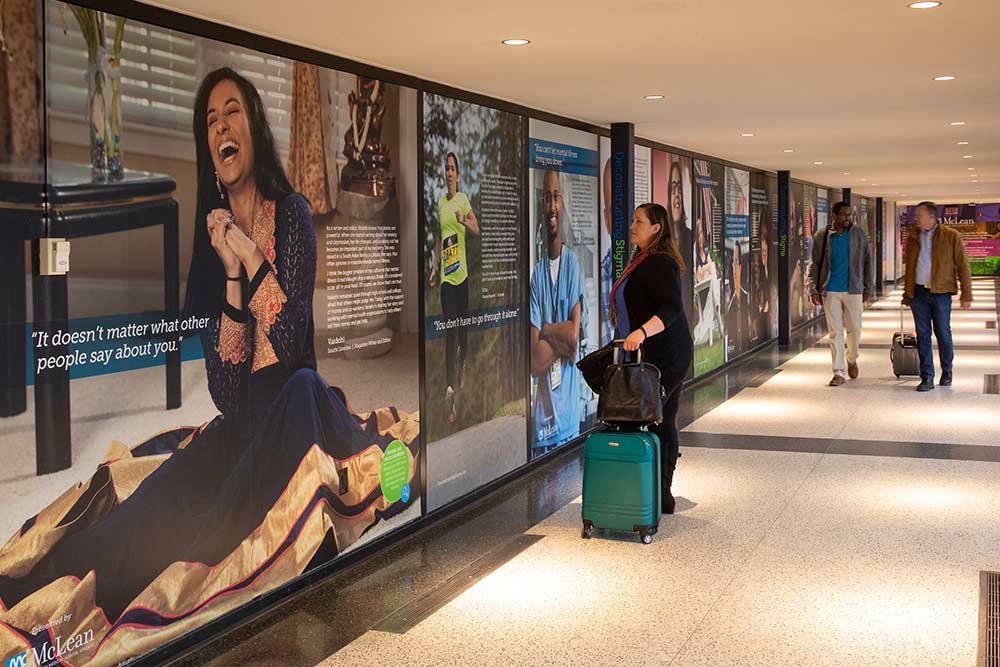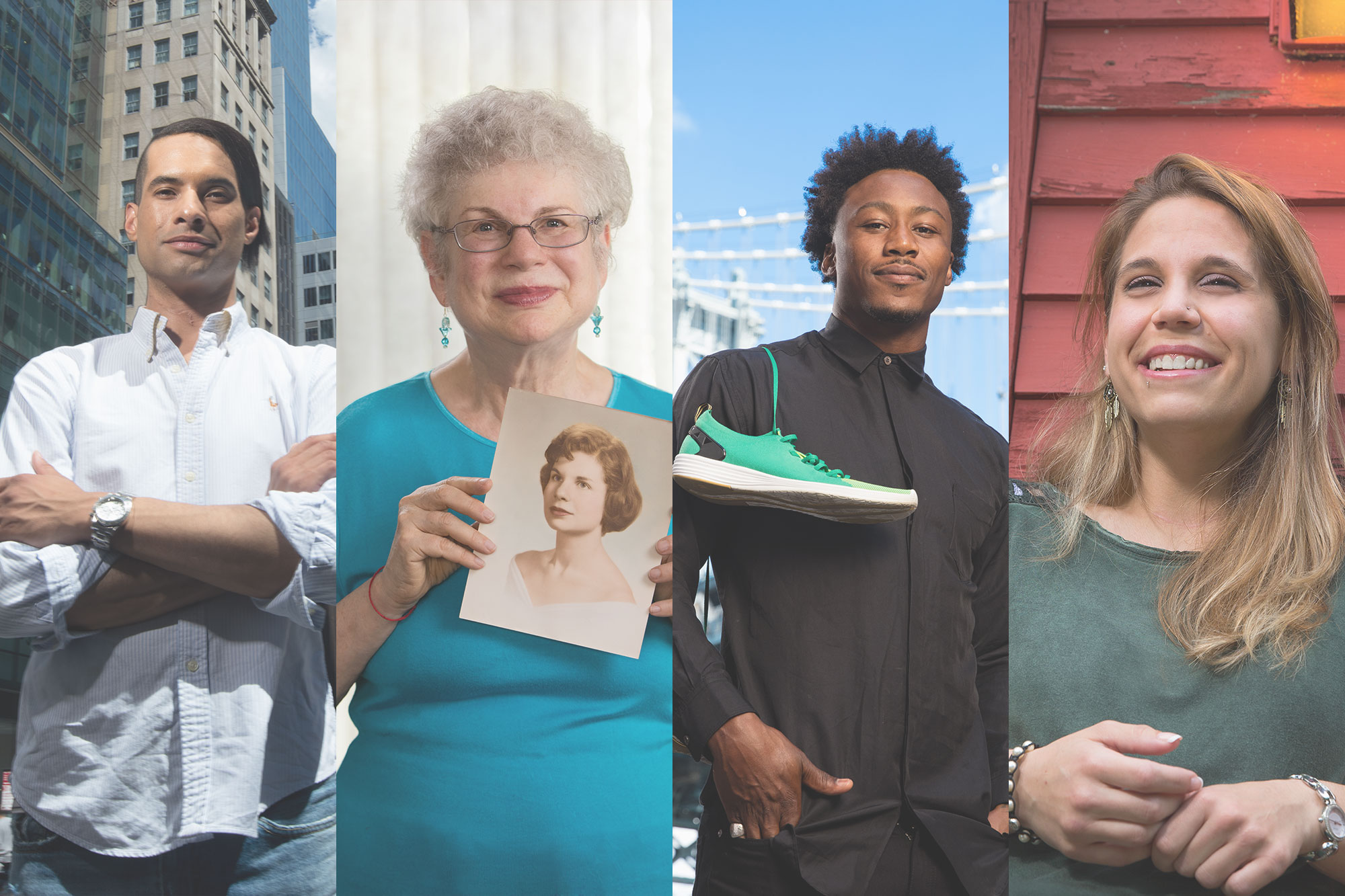He didn’t know how good he was
Ashley believes the only time her older brother Ian was truly free was when he was in his race car.
That’s why he had five track records and dozens of trophies and checkered flags. He got in that car, where nothing was causing him pain, and he was just a genius out there. He didn’t know how good he was—not just good on the track, but good as a human—and what hurts me more than anything was that he never let anyone know how deeply he was suffering on the inside.
When Ian took his life in 2016, his death changed Ashley’s perceptions about suicide. She had thought suicide was for people with blatant problems that everyone should have noticed. She also had thought suicide was selfish.
That’s a huge misconception. Ian was the least selfish person on the planet. I learned immediately when he died that suicide has nothing to do with being selfish; it’s about being desperate, and Ian was desperate.
The talented race car driver; the doting uncle who gave his niece her first American Girl doll and who arranged a visit from the Shelburne Fire Department’s ladder truck on his nephew’s fourth birthday; the big brother who took enormous pride in every one of Ashley’s moves—Ian’s goodness made his loved ones assume he was invulnerable.
If you look at someone with rose-colored glasses, and they’re also the master of hiding things, it’s the perfect storm. He was the best brother in the world, he was the best uncle, the best son, he could not have been a better human being. If only he had asked for help.
Help for Ian would have meant confronting his alcohol use disorder, eating disorder, and undiagnosed depression—mental illnesses that he never asked for and that were not his fault any more than it would have been his fault if he had been afflicted with any other life-threatening diseases. Yet the stigma around his very real illnesses likely made it exceedingly difficult for him to ask for help.
Right now, people are in the process of taking their lives. It’s so devastating to me because I think these are so often good, loving people who are simply overwhelmed by, in most cases, the weight of their mental illness and corresponding burdens. They don’t deserve to die, they don’t deserve to be feeling so low, and they don’t deserve to be feeling an ounce of shame in seeking help. They didn’t ask for this, and it is their obligation to reach out for help.
To honor Ian, Ashley has devoted her energy to suicide prevention and mental health awareness. She gives talks in her community in northern Vermont, campaigns for the American Foundation for Suicide Prevention, and recently became certified as a trainer for the Vermont Suicide Prevention Center’s (VTSPC) Umatter® program.
I equate any mental illness that results in suicide with any disease that’s life-threatening. In 90% of all suicides, there’s an underlying mental illness, oftentimes undiagnosed. Ian and I had the same everything. We were in the same womb, we had the same amazing parents, the same upbringing— everything a kid could ask for, we had—and yet here I am, but he’s in the other realm. How can that be? Because he had an illness that deserved the same care, attention, love, and hope of any other illness, but he didn’t ask for help, and we didn’t see the disease.
I want to say to anyone who is suffering that you are not alone, you are not frail, you are not crazy, you are not broken. You are a human who has needs that have not been met yet. And above everything else, there can be no shame at all in whatever is going on in your mind, body, and soul. You will never be a burden, and you must ask for help. It is then our obligation as a society to be there with open arms, without judgment, and with a promise that it will get better.
Of people who have taken their own lives, Ashley also doesn’t want their last act to define how they lived.
I think that for people who have suicide in their families, it’s almost like they’re robbed of celebrating the good because it’s seen as a black mark. If someone dies from cancer, that doesn’t define them. You always celebrate how they lived. Yet if they take their own lives, that tragically and incorrectly can become their legacy. I fight to change that.
A psychologist once told me: ‘You’ve got to remember that the good stuff was good.’ It seems like such a simple thing to say, but I needed a professional to remind me that the laughter was real, the smiles were real. Ian did have a mask, he kept a lot hidden, but how he died does not define how he lived. I think that’s so important. I celebrate how he lived. And I will work tirelessly for suicide prevention and mental health awareness to be sure that his silent pain was not in vain. This hopeful and lifesaving work will in this way become his legacy too.
I gave talks to hundreds of kids last December. Afterward, a lot of the kids just wanted to talk about Ian’s racing. I thought it was so sweet and refreshing. I told them, ‘Ian would love the fact that you’re asking about this,’ because, again, that’s focusing on how he lived. The suicide messaging was not lost on any of these kids, and it made me feel so good that these kids were like, ‘That guy sounded like a cool guy.’ And he was. He was the best.
In crisis? Please call the National Suicide Prevention Lifeline at 1.800.273.8255 or text “HOME” to 741741.

